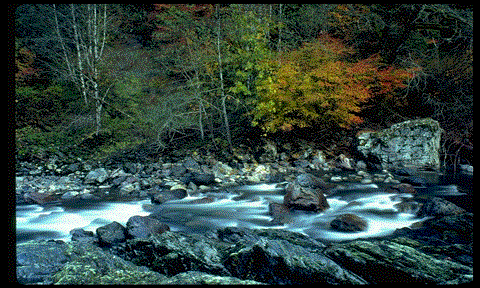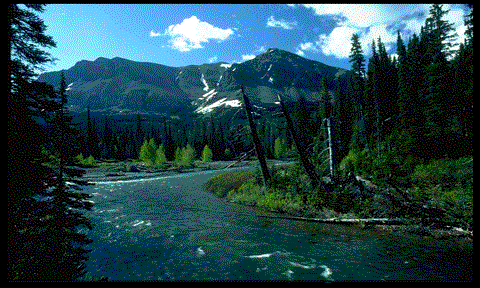Manuscript 21, 1895
[Address Given By Mrs. E. G. White at the
Armadale Camp Meeting November 1895.]
"Behold, what manner of love the Father
hath bestowed upon us, that we should be called the sons of God:
therefore the world knoweth us not, because it knew Him not.
Beloved, now are we the sons of God, and it doth not yet appear
what we shall be: but we know that when He shall appear, we shall
be like Him; for we shall see Him as he is" [1 John 3:1, 2].
From the commencement to the close, this
chapter is full of precious lessons of instruction. We are to
make the Bible the man of our counsel, and instead of taking
from it that which we think will sustain us in our own opinions,
we are to see in it the lessons of instruction God has given
for us. There is truth for us in this Word, and that truth we
must dig for as for hidden treasure.
We may search for the truth as those have
in past ages, thinking that we have a flood of light and yet
only comprehend a small portion of the real instruction, the
efficiency, and the fullness contained in the Scriptures. But
when we search with our heart and mind put to the utmost test,
we shall know for ourselves what we must do that we may have
eternal life, for in the Bible there is something to meet the
wants of each one. An invisible Instructor will be by our side,
and we will find that the Author of this Word is not only the
Author but the Finisher of our faith. His Word standeth fast
from everlasting to everlasting, and we want to learn from it
lessons of eternal interest.
"Behold, what manner of love the Father
hath bestowed upon us, that we should be called the sons of God"
[1 John 3:1]. We cannot find words to express the love of God,
but He calls upon us to behold it. "For God so loved the
world, that He gave His only begotten Son, that whosoever believeth
in Him should not perish, but have everlasting life." "As
Moses lifted up the serpent in the wilderness, even so must the
Son of man be lifted up" [John
3:14].
It is not because God has given His Son
that He loves the world, but because He loved the world He gave
His Son, "that whosoever believeth on Him should not perish,
but have everlasting life." As you connect yourself with
Jesus Christ you connect yourself with eternal life. His life
is in you; you are hid with Christ in God, "and when Christ
who is our life shall appear, then
shall ye also appear with Him in glory" [Col. 3:4].
We have seen enough of what the world calls
perfection to know that all such is valueless, "for the
earth is corrupt under the inhabitants thereof." But if
we hide our life in Christ, we are the happiest mortals on the
face of the earth. We have a faith that works by love and purifies
the soul, for Christ is the purifier and the cleanser of everyone.
Is Christ to you the first, the last, and the best in everything?
If He is, you have a hope that goes beyond the dark shadows which,
like a pall of death, cover the world; your hope is cast within
the veil. You do not drift hither and thither, but have a firm
foundation, even Christ Jesus.
The gospel was first proclaimed in Eden.
"I will put enmity between thee and the woman, and between
thy seed and her seed; it shall bruise thy head, and thou shalt
bruise his heel" [Gen.
3:15]. But through ages of sin the image
of God was almost obliterated from the earth. Satan said, Humanity
cannot keep the law of God. I can take their minds and mold and
fashion them so that they will not regard the law of God.

But God looked down upon our earth, and
seeing that the time had come, Christ the King of glory was born
a helpless babe in Bethlehem. He who is from everlasting, and
who is enshrouded in light unapproachable, He who fills all heaven
with the train of His glory, looks upon sin as the only hateful
thing that there is in our world, and yet He consented that His
only begotten Son, sinless and holy, should take the sin of the
world upon Himself.
Leaving the royal courts of heaven, Christ
came to our world to represent the character of His Father, and
thus help humanity to return to their loyalty. The image of Satan
was upon men, and Christ came that He might bring to them moral
power and efficiency. He came as a helpless babe, bearing the
humanity we bear. "As the children are partakers of flesh
and blood, He also Himself likewise took part of the same"
[Heb. 3:14]. He could not come in the form of an angel, for
unless He met man as man, and testified by His connection with
God that divine power was not given to Him in a different way
to what it will be given to us, He could not be a perfect example
for us.
He came in humility, in order that the
humblest being upon the face of the earth could have no excuse
because of his poverty or ignorance, and say, Because of these
things I cannot obey the law of Jehovah. Christ clothed His divinity
with humanity, that humanity might touch humanity; that He might
live with humanity, and bear all the trials and afflictions of
man. He was tempted in all points like as we are, yet without
sin. In His humanity He understood
all the temptations that will come to man.
After Christ had been placed in the tomb,
Roman guards were stationed round to protect His body. But a
mighty angel from the court of heaven parted the darkness from
his track, and descended to where the Son of God lay. When his
light fell on the guards, they fell as dead men to the earth.
But if the light from one angel caused men to fall to the earth
as dead, Christ could not have come with even that glory. He
took humanity that we, by partaking of His nature, might receive
the impress of Jehovah, and stand as witnesses before men and
angels, and before the whole army of the powers of darkness,
of the efficacy of a crucified Saviour.
Humility marked the path of Christ from
the manger to the cross. He was a man in this small atom of a
world, yet He conquered the power of Satan and released humanity
from his grasp. "The Spirit of the Lord is upon me,"
He said, "because He hath anointed Me to preach the gospel
to the poor; He hath sent Me to heal the brokenhearted, to preach
deliverance to the captives, and recovering of sight to the blind,
to set at liberty them that are bruised" [Luke 4:18].
Step by step Christ descended the path
of humility, pursued by the enemy. He wrestled not against "flesh
and blood, but against principalities, against powers, against
the rulers of the darkness of this world, against spiritual wickedness
in high places" [Eph.
6:12]. This is our work, and therefore
the exhortation is given, "Wherefore take unto you the whole
armor of God, that ye may be able to withstand in the evil day,
and having done all, to stand" [verse 12]. In our fight
we are barricaded by the ten commandments. "If ye do them,"
says Christ, "ye shall live in them."

Christ entered the tomb that man might
pass through the tomb and rise with a resurrection-life. He burst
the fetters of the tomb, and over the rent sepulcher of Joseph
He proclaimed, "I am the resurrection and the life."
And when the last trump shall sound, the Lifegiver will open
the prison houses and those who have fallen asleep in Christ
will come forth to a glorious immortality.
Christ died for the sins of the world that
we might have an opportunity of showing to the universe loyalty
to God and His law. Today He is making an atonement for us before
the Father. "If any man sin, we have an advocate with the
Father, Jesus Christ the righteous" [1 John 2:1]. Pointing to the
palms of His hands, pierced by the fury and prejudice of wicked
men, He says of us, "I have graven thee upon the palms of
My hands." The Father bows in recognition of the price paid
for humanity, and the angels approach the cross of Calvary
with reverence. What a sacrifice is this!
Who can fathom it! It will take the whole of eternity for man
to understand the plan of redemption. It will open to him line
upon line, here a little and there a little.
By transgression man was severed from God,
the communion between them was broken. But Jesus Christ died
upon the cross of Calvary, bearing in His body the sins of the
whole world, and the gulf between heaven and earth was bridged
by that cross. Christ leads men to the gulf and points to the
bridge by which it is spanned, saying, "If any man will
come after Me, let him deny himself, and take up his cross, and
follow Me" [Matt.
16:24].
God gives us a probation in which we may
prove whether or not we will be loyal to Him. Christ calls upon
us to lay our sins upon Him, the Sin-Bearer, that we may represent
God. But if we refuse to let them go, taking the responsibility
ourselves, we will be lost. We may fall upon Christ, the living
stone, and be broken, but if that stone falls upon us, it will
grind us to powder.
In our warfare we have Christ's promise,
"He that loveth Me shall be loved of My Father, and I will
love him, and will manifest Myself to him" He manifested
Himself to John, who had been banished by his persecutors to
the lonely isle of Patmos. But there He who rules the earth and
keeps the waters in their appointed channel, manifested Himself
to John. "I John, who also am your brother, and companion
in tribulation, and in the kingdom and patience of Jesus Christ,
was in the isle that is called Patmos, for the word of God, and
for the testimony of Jesus Christ. I was in the Spirit on the
Lord's day, and heard behind me a great voice, as of a trumpet,
saying, I am Alpha and Omega, the first and the last" [Rev. 1:9-11]:
"the beginning and the ending, saith the Lord, which is,
and which was, and which is to come, the Almighty" [verse 8].
Christ manifested Himself to Peter, and
delivered him from prison by the hand of an angel. He manifested
himself to Stephen, and he, "being full of the Holy Ghost,
looked up steadfastly into heaven, and saw the glory of God,
and Jesus standing on the right hand of God, and said, Behold,
I see the heavens opened, and the Son of man standing on the
right hand of God" [Acts
7:55].
So Christ will manifest Himself to us if
we are faithful. "For I am persuaded, that neither death,
nor life, nor angels, nor principalities, nor powers, nor things
present, nor things to come, nor height, nor depth, nor any other
creature, shall be able to separate us from the love of God which
is in Christ Jesus our Lord" [Rom. 8:38].
Now is the time when we may prove whether
we will obey the law of God, or whether we will transgress. When a sinner unloads his burden at the
foot of the cross, then it is that peace and happiness comes
to him. And there is joy in heaven over one sinner that repenteth
more than over ninety and nine who need no repentance. "The
Lord thy God in the midst of thee is mighty; He will save, He
will rejoice over thee with joy; He will rest in His love, He
will joy over thee with singing" [Zeph. 3:17].
All heaven appreciates the struggles of
those who are fighting for the crown of everlasting life, that
they may be partakers with Christ in the city of God, the very
streets of which are pure gold, "as it were transparent
glass." God wants you there, Christ wants you there, the
heavenly host wants you there. The angels are willing to stand
in the outer circle, and let those who have been redeemed by
the blood of Jesus stand in the inner circle.

Do you realize your value in the sight
of God? He says, "Ye are laborers together with Me."
Are you letting your light shine in clear rays to a fallen world?
Are you seeking to exercise every faculty and every power which
God has given you? You may not be a minister, but you can be
a witness. You may not be an eloquent speaker, but you can be
eloquent in living Christ; you can be eloquent in letting your
light shine before men. You will have to travel a rough path;
you will have to meet with the powers of darkness; but you do
not meet them alone, for God has given you a General.
